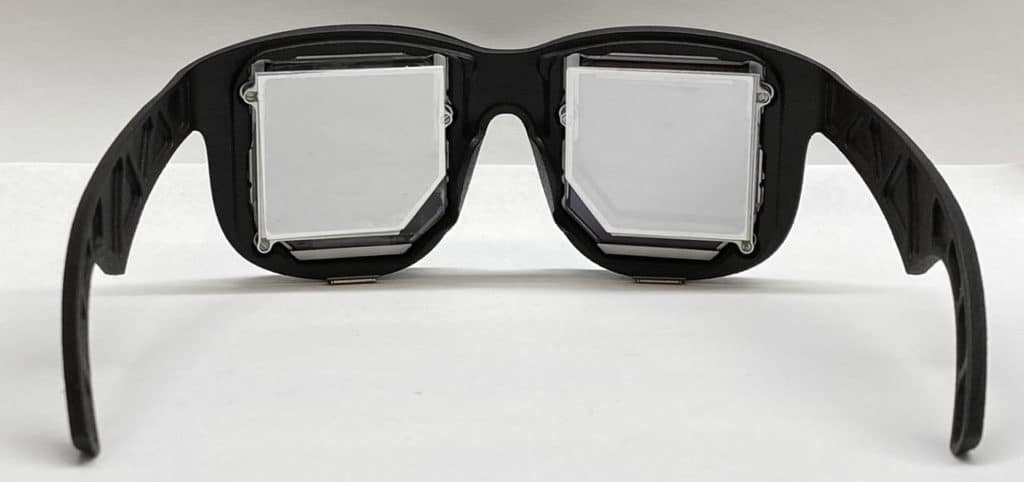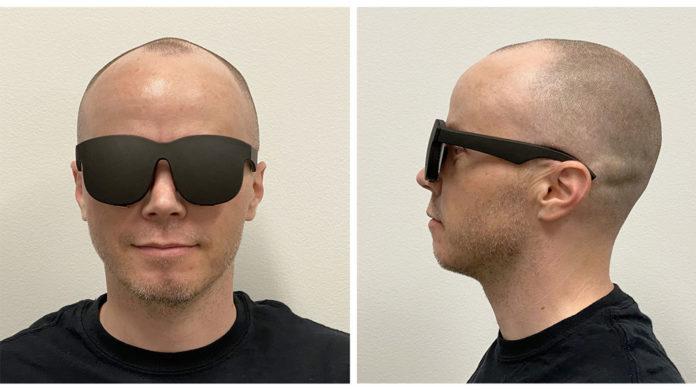Virtual reality (VR) headset or VR masks are quite bulky, heavyweight, and most often surround the main part of the head. In order to tackle this problem, Facebook and Oculus have been trying to make new optical architectures to improve form factor, comfort, and optical performance for a while.
Facebook Reality Labs (FRL) has now presented a new optical architecture that is significantly more compact and offers the potential for better visual performance. Certainly, the most surprising fact is that proof-of-concept research device is not a helmet but lenses that look very similar to simple sunglasses. It uses only thin, flat films for the optics to achieve a display thickness of less than 9 mm.
Beyond the appearance, these lenses are based on holographic display technology and take advantage of a combination of laser lighting and polarization-based optical folding to greatly reduce the necessary distance between the eye and the lens compared to a pair of traditional eyewear.

Credits: Facebook
Traditional VR headsets have a large empty space between the lens and the screen, an imperative in optics to avoid being faced with a blurred image. In these headsets, the light follows a linear path to concentrate on a single point of the eye. The researchers propose to use a polarization-based optical folding technique to replace this system, which moves the light both forward and backward within the lens so that this empty space can be traversed multiple times, and therefore reduces the space required.
In addition to being less bulky, the VR glasses will be much lighter than current technologies. Facebook’s prototype lenses weigh 17.8 grams, but keep in mind that they don’t have a battery or hardware that would add a lot more weight. Just to give a reference, usually a 10,000 mAh battery weighs around 27 grams.
On the prototype presented by Facebook, the screen currently displays only green. The new optical system presented here is indeed not able to make the light travel completely and acts as a filter. Facebook obviously wants to develop its prototype to allow it to display a much wider color spectrum, and even more vivid imagery when the technology is ready. The team would also like to increase the field of vision offered by the glasses and improve the resolution to the limit of human vision.
Facebook is careful to note that its work at the moment is “purely research”, but it has many promises about what virtual reality headsets might look like in the future. In short, the prototype, however interesting, still requires a lot of work, and surely we will know more about it at the virtual SIGGRAPH conference this year.
